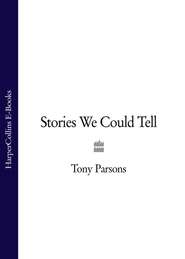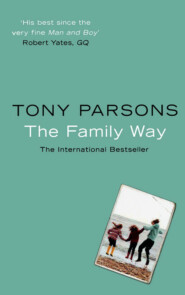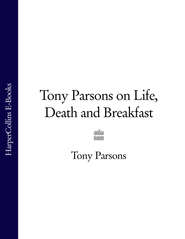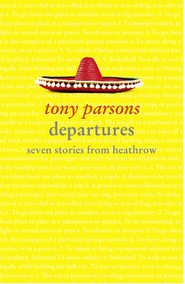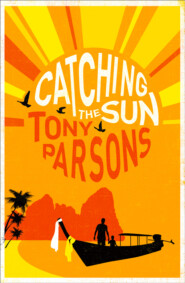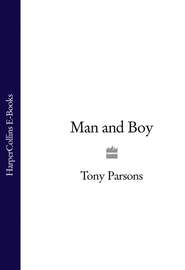По всем вопросам обращайтесь на: info@litportal.ru
(©) 2003-2025.
✖
Starting Over
Автор
Год написания книги
2018
Настройки чтения
Размер шрифта
Высота строк
Поля
‘If possible, try to make a U-turn…try to make a U-turn.’
It is late now. She doesn’t know this neighbourhood. The big BMW X5 rolls past strips of worn-out shops, ugly superstores, unlit yards protected by razor wire. And everywhere, there are the children. In groups of three or four or more, standing by their bikes, the light from their phones glowing in their fists, their faces hidden inside their hooded tops.
‘Try to make a U-turn…’
‘I’m trying!’ she shouts, suddenly aware that she has had perhaps one glass of wine too many.
Eyes follow her. At least that is how it feels. She is too well dressed for this area, the car too conspicuously expensive. She should have taken her own beat-up little runaround. But her husband had pressed the BMW X5 on her, telling her she would feel safer.
Yeah, right.
The terrain changes. Suddenly the exhausted shops and the superstores and the herds of sullen youth have gone. There are no signs of life here. These are streets full of – what are they? – warehouses. Old warehouses. Big, black buildings with long skylights that have been smashed. They look as though they were deserted years ago, as though they are rotting, as though they are waiting to be swept away and built upon. The big car barrels through the dead streets. She is perhaps a few miles from home but this no longer feels like her town.
‘Try to make a U-turn…’
‘Oh, try to put a bloody sock in it!’ she cries.
And then she sees him.
The boy lying in the middle of the road. He is curled up in a foetal position, but one arm is stretched out, supporting his head. Her foot touches the brakes, but only for a moment. It is the arm stretched out, making a pillow for his head, that makes her feel that this is wrong, all wrong, that this is trouble waiting to happen.
So she does not stop.
She puts her foot on the throttle and yanks at the steering wheel, swerving around the boy at the last moment. In the rear-view mirror she sees that he has not stirred. The car almost hit him and yet he did not move a muscle. And all at once she believes that she is mistaken.
This is someone who is really hurt, she thinks. This is someone who needs her help.
The car comes to a halt.
She pulls out her phone.
No signal.
Then she finally obeys the woman on the sat nav and makes a U-turn, abruptly pulling off the road and into an abandoned petrol station where the pumps are gone but the roof still bears the fading name of an oil company. There is a low wall running around the petrol station and beyond it the place has been turned into a rubbish dump. Debris everywhere. She registers black bags that have been ripped open by sharp teeth, a burned-out car, a grease-blackened oven, and some old computers with their screens stoved in. Suddenly it is like driving on the surface of the moon. The BMW X5 bounces over God knows what and now she is glad to be driving this thing.
She pulls up next to a pothole where a petrol pump once stood and she leans forward, the engine idling, staring at the boy in the middle of the road lit by her headlights.
And she still doesn’t know.
She still doesn’t know if he is really hurt. She can’t just leave him lying there. But she can’t get out of the car.
So she puts her foot down and drives through the ruined petrol station, the big car lurching and bumping, and all the while she watches the boy, illuminated by her lights, and then receding in the rear-view mirror.
And he never moves.
But she knows she is not getting out of this car and so she swings it on to the road and heads back the way she came with the woman on the sat nav silent now, as if happy at last.
They could not be more understanding at the police station. They tell her she did the right thing. You don’t get out of your car in that neighbourhood. A young red-haired cop in a suit and tie drives her back to where she saw the boy in the road.
And he has gone.
The cop and the woman get out of the unmarked car. Perhaps this wasn’t the place? No, this was definitely the place. She recognises the petrol station with the disappearing name. This is it, she insists.
And that is when they see the body.
He must have been hiding behind the low wall that skirts the petrol station. Waiting for her to stop. Waiting for her to get out of the car to help his friend. Waiting for her to do the right thing, which would have been exactly the wrong thing.
And when the woman had turned her car round, when she had finally made that U-turn, she had driven right across him.
The one who was hiding, the one who was waiting. She looks away quickly but not fast enough to avoid seeing the tyre marks on his face. Too young, she thinks. Still in his teens. Too young for this to happen.
And then he makes a noise and both the woman and the cop cry out.
Somehow he is alive.
Somehow he is still alive.
But not for long.
And at the hospital, after the young unknown male has been pronounced dead in the A&E, the red-haired cop stands with the duty nurse and signs a form acknowledging receipt of the sad contents of the dead boy’s pockets. One by one, the policeman drops them into a small plastic bag.
Some keys. An Oyster card. A wallet with a picture of a small child, somewhere between a baby and a toddler. A little boy, thinks the cop, but only because the Babygro is blue. A woman is holding the child. You can see her hands, her arms, and a part of her smile.
There are a handful of credit cards, each bearing a different name. Hiroshi Yamamoto. Deirdre Smith. Elisabeth Kubler-Ross. A few crumpled notes. And a cheap mobile phone, still switched on. It suddenly lights up and begins to ring. Some popular tune or other. The cop places it to one side, staring at it, as if trying to place the melody.
And finally there is the blue plastic card. The cop looks at the card.
It’s not much.
It is just a blue plastic card with a few white words and a splash of red, in the shape of a heart.
And the woman is at home, safe and sound but still shaking, with her husband and a stiff drink, and he says thank God she did the right thing by staying in the car.
And she sips her drink and she thanks God too.
Once upon a time she would have got out of the car. She would have reached out a helping hand to her fellow man.
But you grow out of all that.
one (#ulink_4d0be814-7a7e-504a-8473-6d2498fbe654)
I waited for my son to come home.
I watched the late news and turned it off. I flicked through the paper and tossed it aside. I went to the back door and smoked a cigarette with one foot in the kitchen and the other in the garden, watching the smoke disappear into the night sky, waving it on its way, destroying the evidence.
But all the while I was waiting.
My head ached with all the things that can go wrong at seventeen. The wrecked car. The knife pulled. The powder cut with poison. Beyond my window there were children killing children, and my boy was out there among them.






